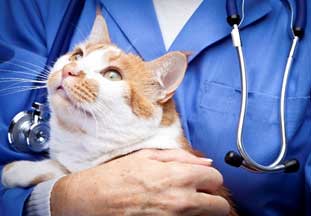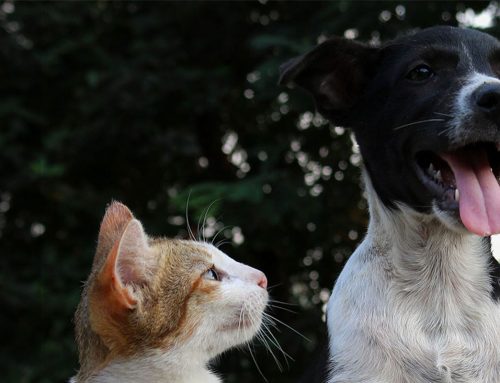 July is ‘National Desexing Month’, during which the benefits of getting our pets desexed are highlighted, as well as our social responsibility to avoid exacerbating the problems of animal homelessness. According to the RSPCA, more than 250,000 cats and dogs in animal shelters are euthanised each year because homes cannot be found. National desexing month’s objective is to raise awareness of this tragic issue and desexing your pet is one of the ways we can help to address it.
July is ‘National Desexing Month’, during which the benefits of getting our pets desexed are highlighted, as well as our social responsibility to avoid exacerbating the problems of animal homelessness. According to the RSPCA, more than 250,000 cats and dogs in animal shelters are euthanised each year because homes cannot be found. National desexing month’s objective is to raise awareness of this tragic issue and desexing your pet is one of the ways we can help to address it.
If you own a pet and do not intend to breed from it, have it desexed. By desexing your pet, you are doing your part to reduce this problem in Australia. You are also improving your pet’s quality of life.
Desexing your pet—What are your legal obligations?
In Australia, the legal requirements for desexing dogs and cats are a state responsibility. The laws differ from state to state and, in addition, some local councils have by-laws that require desexing as a compulsory part of animal registration.
Because cats can become sexually mature at four months of age and dogs by six months, states require mandatory desexing at prescribed ages, to prevent unwanted litters of cats and dogs. In all states with compulsory desexing, there are limited exemptions, usually for permit-holding registered breeders.
The following table is a guide to whether desexing is legally required in your state. We recommend that you check the relevant legislation for specific details:
| State | Compulsory Desexing for Dogs and Cats |
| ACT | Yes – Dogs older than six months or cats older than 3 months old must be desexed, unless you have a permit. |
| NSW | No |
| NT | No |
| QLD | No |
| SA | Yes – Dogs and cat older than six months must be desexed, with some exceptions. |
| TAS | Dogs: No
Cats: Yes – Cats older than six months must be desexed, with some exceptions. |
| VIC | No |
| WA | Dogs: No
Cats: Yes – Cats older than six months must be desexed, with some exceptions. |
What are the health benefits of desexing your cat or dog?
 The desexing procedure is an ovariohysterectomy in females, and castration in males. Because dogs can become pregnant as early as six months of age, and cats by four months, it is important to desex them before this time to protect them from unwanted pregnancies. Early-age desexing happens at around three months. Younger pets tend to recover from the surgery faster, however, desexing is generally safe for older pets too. Check with us if you have any questions about whether desexing is appropriate for your pet.
The desexing procedure is an ovariohysterectomy in females, and castration in males. Because dogs can become pregnant as early as six months of age, and cats by four months, it is important to desex them before this time to protect them from unwanted pregnancies. Early-age desexing happens at around three months. Younger pets tend to recover from the surgery faster, however, desexing is generally safe for older pets too. Check with us if you have any questions about whether desexing is appropriate for your pet.
Why should you desex your pet? Here are some great reasons why desexed pets are happier and healthier animals:
- Desexing is an effective strategy to prevent unwanted pregnancies
- It has been shown to increase the lifespan of animals
- Desexed animals are less likely to suffer from diseases
- Desexing eliminates the possibility of testicular cancer in males
- It reduces the likelihood of mammary cancer and uterine infections in female pets
- Desexing reduces behavioural problems such as roaming and aggression. This reduces the risk of injury in a fight or being hit by a car
- It stops males from marking their territory with urine
- It prevents mating behaviour and false pregnancy in females
- Desexing can take away the distraction of sex hormones so they are more receptive and focused when it comes to training
Does my pet need to have a litter before I desex?
There is a often-held belief that females should have a litter before being desexed, however research has shown that this is not necessary and has no benefit.
Will my pet’s personality or body change after desexing?
Pets do not become more or less active after desexing. It will not impact their personality, but it may improve their temperament because they will not experience the discomfort of being on heat or the hormonal aggression.
Desexing is the most responsible choice you can make as a pet owner. In addition to numerous health and behavioural benefits you can help curb unwanted pregnancies that contribute to animal homelessness. If you have any questions or concerns about desexing, or if you’d like to book in to have your pet desexed, please get in touch.



